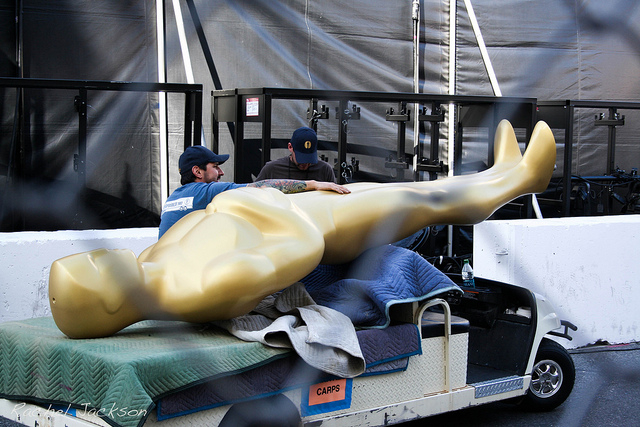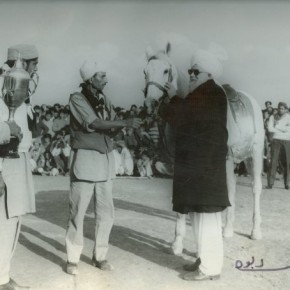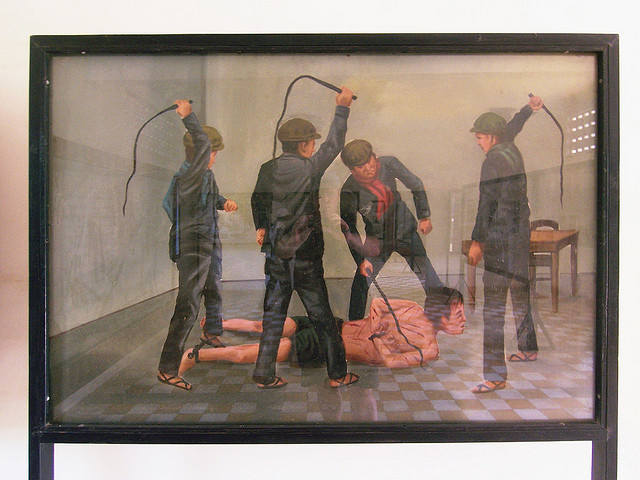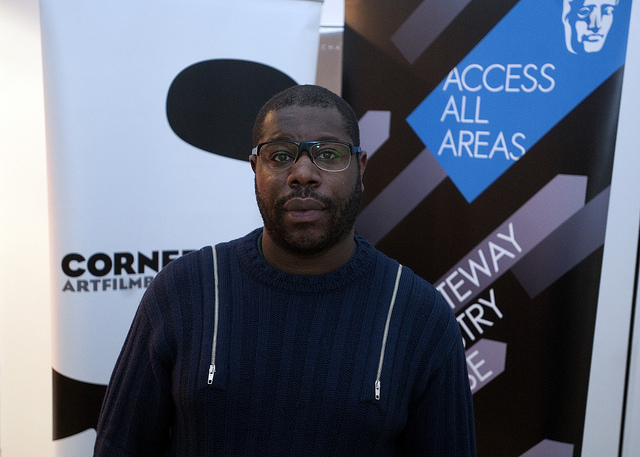In the comments section, there is nothing worse than the person who confesses to neither reading the piece, nor viewing/reading/listening to its subject before levying an opinion. And yet, that is what I am about to do. Because I did not watch the Academy Awards, and yet I have an opinion about them. Or, rather, I have an opinion about how the awarding itself went down. And my opinion really comes down to this: Not surprised, but still disappointed.
It is strange for me to be disappointed at all, because that would mean I had an investment in the outcome. And I did. In addition to my wanting my beloved The Missing Picture to win Best Foreign Language Film (for reasons I only began to list in my review), I wanted films that challenged the complacency of the endeavour to win. I wanted to see Wolf of Wall Street (Martin Scorsese, 2013) and The Act of Killing (Joshua Oppenheimer, 2013) win. These two films are my fascinations and my bugbears. They were so gleefully cinematic that they reminded me of how much cinema is bound up in violence, and why cinema and violence succeed so persistently.
Only a few weeks ago, I was in stuck in the middle of an argument. On the one side, a colleague declared The Wolf of Wall Street horrifically misogynistic. On the other side, another colleague declared it brilliant, and took pleasure in Richard Brody’s satisfying open to his review in The New Yorker: “Anyone who needs “The Wolf of Wall Street” to explain that the stock-market fraud and personal irresponsibility it depicts are morally wrong is dead from the neck up; but anyone who can’t take vast pleasure in its depiction of delinquent behavior is dead from the neck down.” To both the anger and the joy, I responded, ‘yes’, and explained that in order to love film as much as I have, I have had to accept the misogyny, the racism, and the violence. This isn’t’ shocking. Many communities deny themselves in order to embrace cinema’s delights.

What is so impressive, then, about The Wolf of Wall Street and The Act of Killing is that they force these discomforts onto a larger audience. Martin Scorsese provides three relentless hours of excess that become almost painful to consume. Although perhaps, they were more painful for me, as I realised I didn’t have it in me to work on Wall Street (if endless eating, drinking, fucking, and drugging were what it took) and because I had to wonder what was happening: using the film’s pleasures to mirror this excess, or to critique it? The Wolf of Wall Street might seem to call attention to the misogyny of the financial sector, particularly in the run down of prostitutes. But at the same time, in its content, it employed the same logic to depict the rise and fall of its characters. And of course, its characters barely fell, and the violence of their actions remain offscreen.
The violence of the Indonesian genocidaires in The Act of Killing may appear on screen, but only filtered through the cinephilic imaginary of the perpetrators. This fantasy too, is laden with violence: the violence of the historical event, the violence of impunity, and the violence of the cinema that re-enacts and reaffirms their place in both history and fantasy. In their minds, they are the heroes of Indonesia’s battle against communists, and they re-enact their heroism and success using all the tools provided in the cinematic toolbox.
In effect, the films and their protagonists draw on all that cinema allows to create and propagate the pleasurable fantasies of their heroism, their success over the odds. And these are the stories that the Academy loves. There can be no question of that when the theme for the ceremony was ‘heroes’ and the awards went to those who readily fit a narrative of ‘managed’ horrors (slavery and AIDS.) The winners here embraced the role of film—and the more standard depictions of singular heroes, and readily contained narratives—as that which can tell and celebrate the histories according to fantasy. Those that didn’t win probably didn’t, because they reminded the Academy, and us, about how politically troubling those fantasies can be.
Photographs courtesy of Rachel and Cheryl Jackson. Published under a Creative Commons license.





